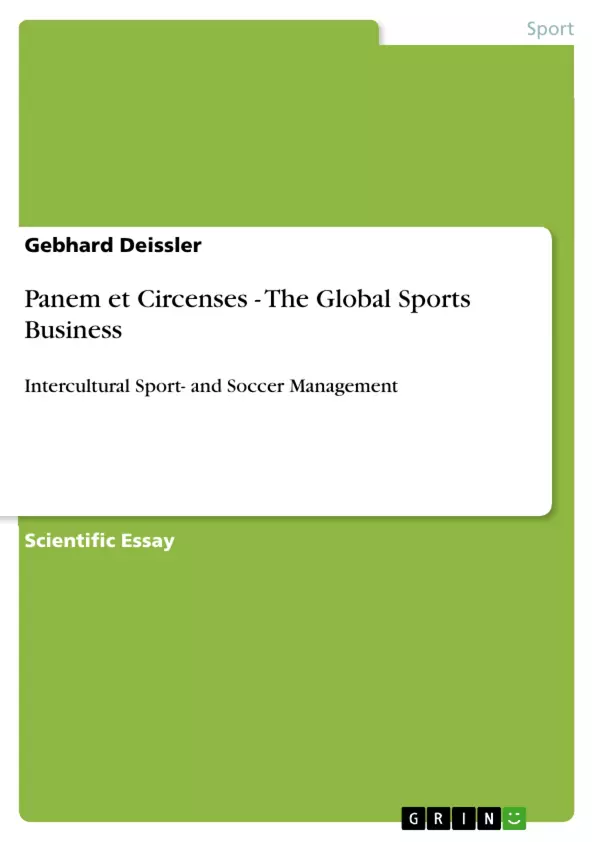This soccer vedemecum covers the sociohistorical aspect; the cultural imperative of global sports; soccer from an economic/political standpoint; soccer from a socio-psychological perspective; cultural strategy, tactics and styles of soccer.
Table of Contents
- Five Dimensions of Global Sports and More Specifically Global Soccer Management
- The sociohistorical aspect
- The cultural imperative of global sports
- Soccer from an economic/political standpoint
- Soccer from a socio-psychological perspective
- Cultural strategy, tactics and styles of soccer
Objectives and Key Themes
This text examines the global sports business, specifically focusing on the cultural dimensions of global soccer management. It aims to provide a comprehensive analysis of the multifaceted nature of this industry, considering various perspectives including its sociohistorical context, economic and political implications, and socio-psychological dynamics.
- The sociohistorical context of global sports
- The cultural influence and significance of global sports
- The economic and political dimensions of global soccer
- The socio-psychological factors driving participation and consumption of global sports
- Cultural strategies, tactics, and styles in global soccer
Chapter Summaries
The text explores the five dimensions of global sports, with a particular focus on global soccer management. It delves into the sociohistorical aspect, tracing the roots of "panem et circenses" and its relevance to global sports today. It examines the cultural imperative of global sports, highlighting its influence on societies and individuals. The economic and political dimensions are explored, analyzing the intricate interplay of these forces within the global soccer landscape. The text also delves into the socio-psychological perspective, shedding light on the motivations and emotions driving individual and collective engagement with global sports. Finally, it investigates cultural strategies, tactics, and styles in soccer, exploring how different cultural contexts shape the game.
Keywords
Key themes and concepts explored in the text include global sports business, intercultural management, cultural strategy, socio-psychological factors, economic and political influence, global soccer, "panem et circenses," cultural imperative, and cultural diversity.
- Citation du texte
- D.E.A./UNIV. PARIS I Gebhard Deissler (Auteur), 2012, Panem et Circenses - The Global Sports Business, Munich, GRIN Verlag, https://www.grin.com/document/196767



